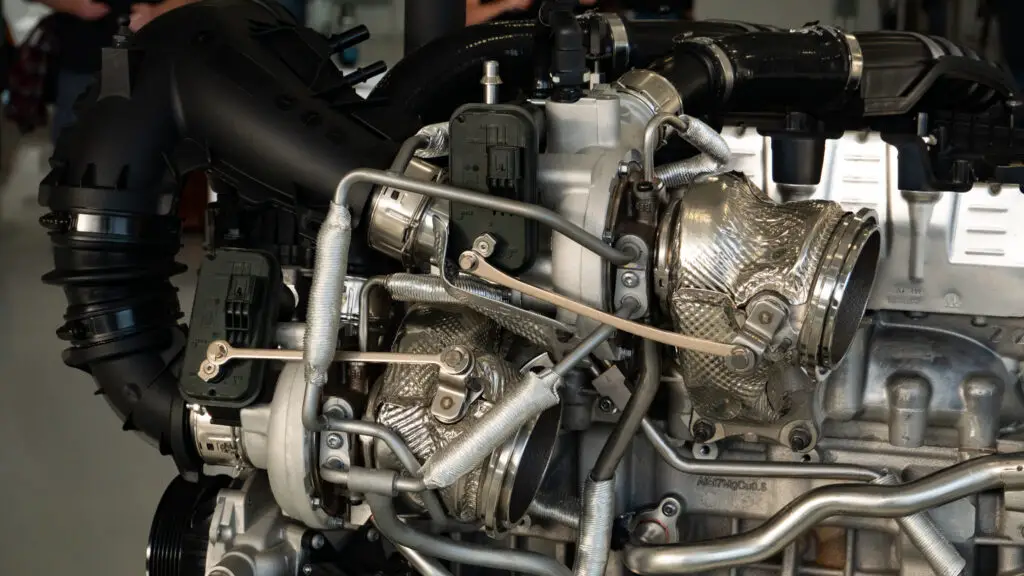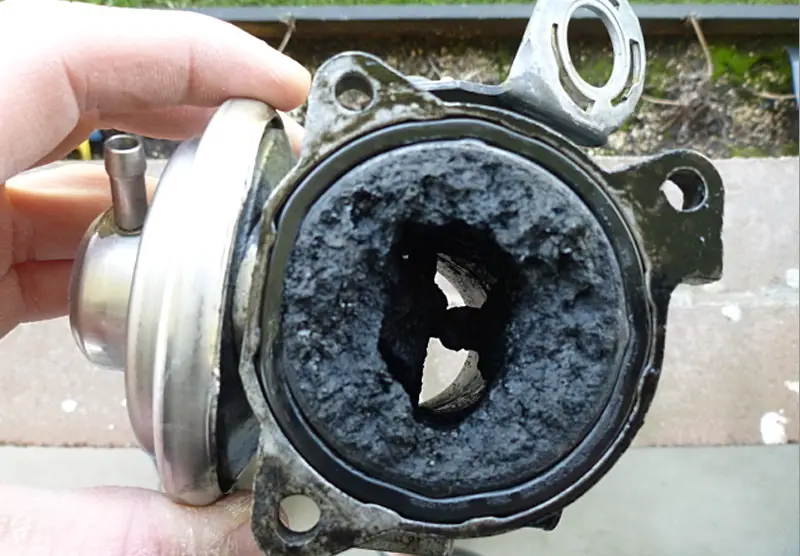Hurricane engine problems are typically related to issues such as thermostat failures, carbon buildup, oil leaks, turbocharger malfunctions, and engine misfires. While these problems can affect performance.
The Hurricane engine is Stellantis’ flagship offering aimed at replacing larger V8 engines in various vehicles, including the Jeep Grand Wagoneer, Ram 1500, and other Dodge models. This 3.0-liter, twin-turbocharged inline-six engine is designed to deliver both power and fuel efficiency, a combination that many consumers are looking for in their trucks and SUVs. While the Hurricane engine offers impressive specs and a remarkable driving experience, some users have reported issues that affect engine performance and longevity.
Identifying the potential problems with the Hurricane engine is essential, as early detection and proper maintenance can prevent costly repairs down the line. The good news is that many of these problems are manageable if addressed promptly. This article will cover the most common Hurricane engine problems, provide insight into what causes them, and offer tips on how to maintain the engine to ensure it continues to perform optimally.

Contents
Common Problems with the Hurricane Engine
While the Hurricane engine offers impressive performance and power, it is not without its share of issues that can affect its reliability. Let’s explore the most common problems reported by owners and understand their causes, symptoms, and potential solutions.
1. Thermostat Failures
One of the recurring issues with the Hurricane engine is thermostat failure. The thermostat plays a crucial role in regulating the engine’s temperature by controlling the flow of coolant. If the thermostat malfunctions, it can cause the engine to overheat, which could lead to severe engine damage. Owners have reported instances where their vehicles displayed overheating warnings or coolant leaks, often linked to faulty thermostats.
Causes of Thermostat Failures
- Manufacturing Defects: In some cases, thermostats in the Hurricane engine may be prone to failure due to design flaws or defects that occur during manufacturing.
- Obstructions in the Cooling System: Dirt, debris, or contaminants in the cooling system can impede the thermostat’s function, preventing it from regulating the temperature effectively.
Symptoms of Thermostat Issues
- Engine Overheating: A significant sign of a thermostat failure is when the engine temperature rises too high, causing the vehicle to overheat.
- Fluctuating Temperature Readings: If the thermostat is stuck or malfunctioning, you might notice the temperature gauge in your vehicle fluctuating unexpectedly.
- Coolant Leaks: In some cases, a damaged thermostat can lead to coolant leaking, which can cause further damage to the engine if not addressed promptly.
Solutions for Thermostat Failures
- Routine Cooling System Checks: It’s important to regularly inspect the cooling system to catch any thermostat issues early.
- Timely Thermostat Replacement: If your thermostat is malfunctioning, replacing it with a genuine, high-quality part is the best solution to avoid further engine damage.
2. Carbon Build-Up on Intake Valves
Another issue commonly associated with the Hurricane engine, as well as other direct injection engines, is carbon buildup on intake valves. The Hurricane engine uses direct fuel injection, which does not allow fuel to wash over the intake valves. Over time, this can lead to the accumulation of carbon deposits, which can affect engine performance.
Causes of Carbon Build-Up
- Direct Injection Technology: In engines with direct injection, fuel is injected directly into the combustion chamber, bypassing the intake valves, which means that the valves do not get cleaned by the fuel as in traditional engines.
- Low-Quality Fuel: Using fuel with a higher carbon content can contribute to the rapid buildup of deposits on the intake valves.
Symptoms of Carbon Build-Up
- Rough Idling: As carbon builds up on the intake valves, the engine may start to idle roughly, which can lead to unpleasant vibrations.
- Reduced Engine Power: Carbon buildup can cause poor airflow into the engine, reducing performance and acceleration.
- Check Engine Light: A malfunction due to carbon buildup can trigger the check engine light, which could indicate issues with the intake system.
Solutions to Prevent Carbon Build-Up
- Use High-Quality Fuel: Fuel that is higher in quality and lower in carbon content can help reduce carbon accumulation in the engine.
- Regular Intake Cleaning: Periodic cleaning of the intake valves by professionals can help prevent carbon buildup from becoming problematic.
- Fuel System Additives: Certain fuel additives are designed to help clean the intake system and reduce carbon deposits.

3. Oil Leaks
Oil leaks are another issue that some owners have reported with the Hurricane engine. Oil leakage from the engine can lead to low oil levels, causing increased friction and potential engine damage.
Causes of Oil Leaks
- Worn Seals and Gaskets: Over time, engine seals and gaskets may wear out, causing oil to leak from the engine.
- Improper Installation: In some cases, improperly installed parts or seals during assembly can lead to oil leaks.
- Engine Pressure: If the engine experiences excessive pressure due to overheating or other factors, it may cause seals to fail, leading to oil leaks.
Symptoms of Oil Leaks
- Oil Spots Under the Vehicle: If you notice oil stains or puddles under your vehicle, it could be a sign of an oil leak.
- Low Oil Levels: A decrease in oil levels over time could indicate that oil is leaking somewhere in the engine.
- Burning Oil Smell: If oil leaks onto hot engine components, it can create a burning smell, which may be noticeable while driving.
Solutions for Oil Leaks
- Regular Oil Checks: Frequently check oil levels and look for any signs of leakage, especially around seals and gaskets.
- Prompt Repairs: If an oil leak is detected, have the seals or gaskets replaced by a professional mechanic as soon as possible.
4. Turbocharger Issues
The turbocharger in the Hurricane engine is responsible for increasing power output, allowing the engine to perform at a high level. However, some owners have reported issues with the turbocharger, including loss of power or unusual noises.
Causes of Turbocharger Problems
- Oil Contamination: When oil becomes contaminated due to issues like oil dilution, it can affect the turbocharger’s performance, leading to potential damage.
- Lack of Lubrication: Insufficient oil flow can cause the turbocharger components to wear out prematurely.
Symptoms of Turbocharger Issues
- Loss of Power: If the turbocharger is not functioning properly, it may lead to a noticeable drop in engine power and acceleration.
- Unusual Noises: Whining or rattling noises from the turbocharger could indicate internal damage or insufficient lubrication.
- Check Engine Light: If the turbocharger is malfunctioning, it can trigger the check engine light.
Solutions for Turbocharger Issues
- Regular Oil Changes: Ensure oil is changed regularly to keep the turbocharger well-lubricated.
- Proper Monitoring: Check oil levels frequently to ensure the turbocharger has adequate lubrication.
5. Engine Misfires and Warning Lights
Some Hurricane engine owners have experienced engine misfires and warning lights, signaling internal problems that need immediate attention.
Causes of Engine Misfires
- Faulty Sensors: Malfunctioning sensors can cause the engine to misfire by sending incorrect information to the engine control unit (ECU).
- Fuel Delivery Issues: Problems with the fuel injectors or fuel system can lead to engine misfires, affecting performance.
Symptoms of Engine Misfires
- Rough Idle: A misfiring engine may idle roughly, causing noticeable vibrations.
- Poor Acceleration: A decrease in power output during acceleration could be a result of misfires.
- Check Engine Light: Engine misfires will typically trigger the check engine light on your dashboard.
Solutions for Engine Misfires
- Sensor Replacement: If a faulty sensor is causing misfires, replacing it can resolve the issue.
- Fuel System Inspection: Ensure the fuel injectors and fuel system are functioning properly to prevent misfires.
Frequently Asked Questions
Here are some FAQs about hurricane engine problems –
1. Is the Hurricane engine reliable?
The Hurricane engine is generally reliable but can experience issues such as oil leaks, turbocharger problems, and carbon buildup. Regular maintenance can help reduce these risks.
2. How often should I change the oil in my Hurricane engine?
It is recommended to change the oil every 5,000 to 7,500 miles, depending on driving conditions and the manufacturer’s recommendations.
3. Can I use any type of oil in my Hurricane engine?
It’s best to use the oil grade and specifications recommended by the manufacturer to ensure optimal performance.
4. Are there any recalls for the Hurricane engine?
As of now, there are no widespread recalls for the Hurricane engine, but it’s important to stay updated with the manufacturer’s announcements.
5. How can I prevent carbon build-up in my engine?
Using high-quality fuel and performing regular maintenance can help reduce carbon buildup in your engine.
Conclusion
While the Hurricane engine offers remarkable performance and efficiency, it is not without its issues. Common problems like thermostat failures, carbon buildup, oil leaks, turbocharger issues, and engine misfires have been reported by some owners, but many of these issues can be prevented or mitigated with regular maintenance. By staying on top of routine maintenance, addressing issues early, and using quality parts, you can help ensure the Hurricane engine performs optimally for years to come.